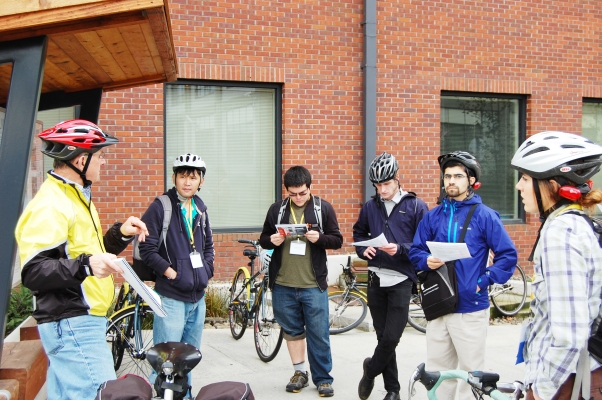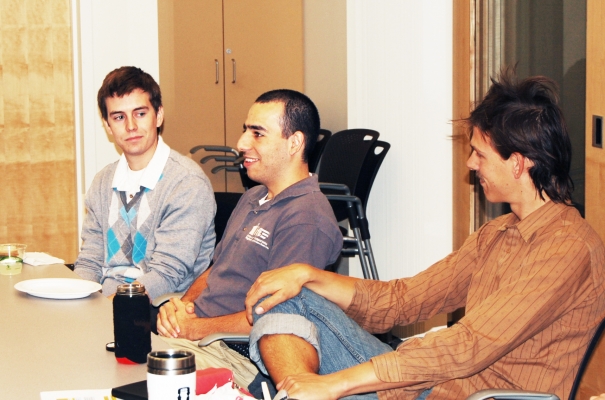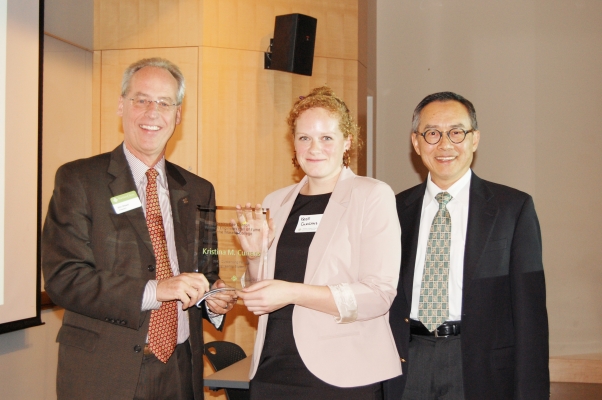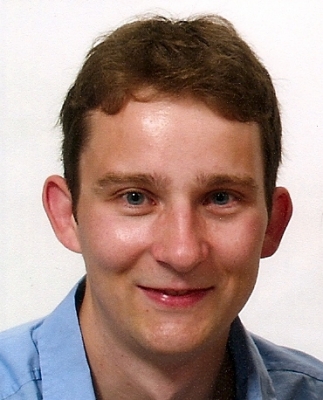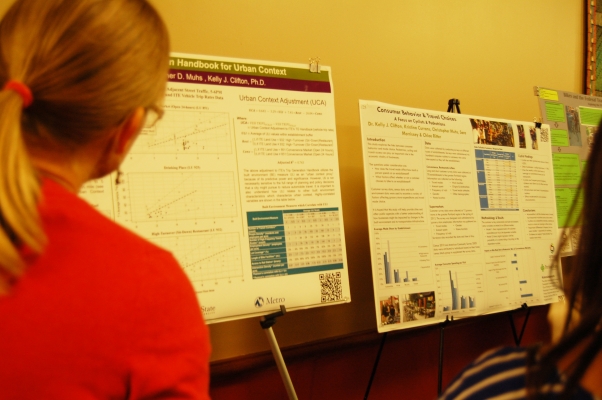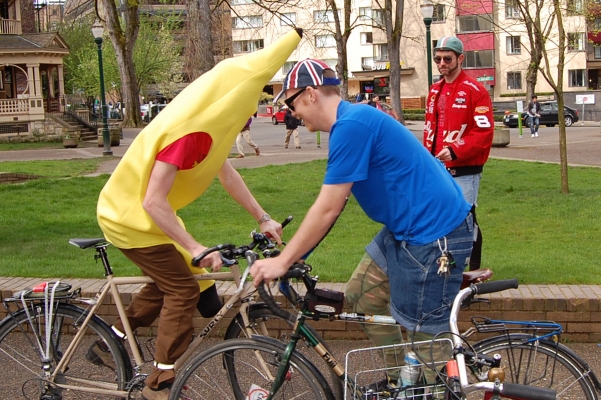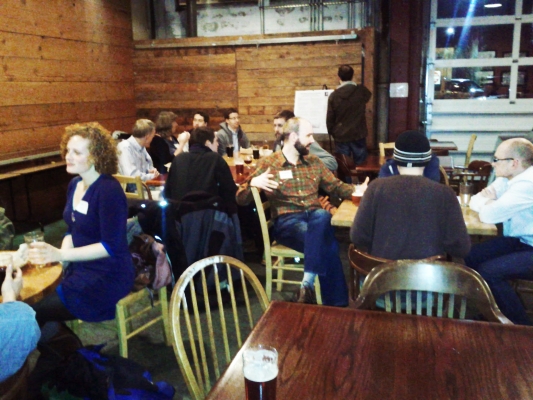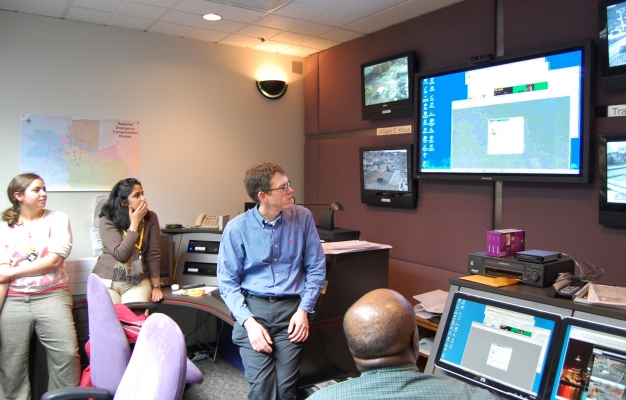PSU’s Students in Transportation Engineering and Planning (STEP) hosted the 10th Annual Region X Conference on November 16, and it was the most widely-attended Region X event in recent memory. With participating universities including Oregon State University, Cal Poly Pomona, University of Oregon, University of Utah, University of Washington and Washington State University, the more than 100 registrants “really surprised” STEP President S. R. Thompson. “The turnout was high compared to previous years.” This is likely in part due to the first-time participation of the two Washington schools.
This year’s conference featured student research presentations and a poster session, as well as three afternoon breakout sessions that offered tours of effective transportation engineering examples in the Portland Metro area. Thompson reports a unanimously positive response to the breakout sessions from those tour participants who followed up with her after the conference adjourned.
The conference’s morning keynote was also popular and garnered plenty of student participation in the discussion that followed. “We did things a little differently for the keynote presentation this year,” Thompson said. The presentation featured a panel of notable transportation professionals from the Portland area who each discussed their respective entries into the transportation field as well as the joys and challenges of the work.
"We were lucky in terms of our panel...
Read more
